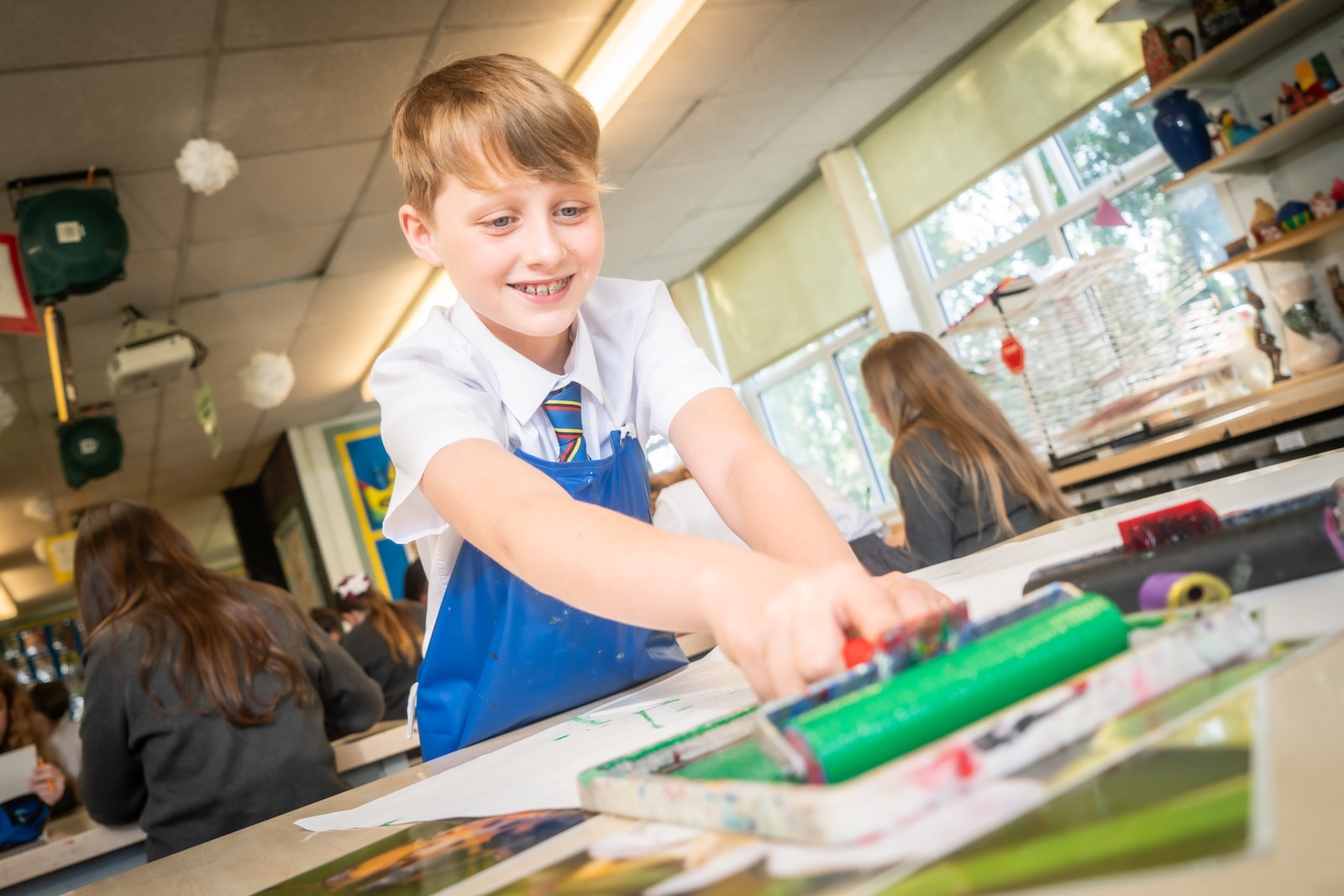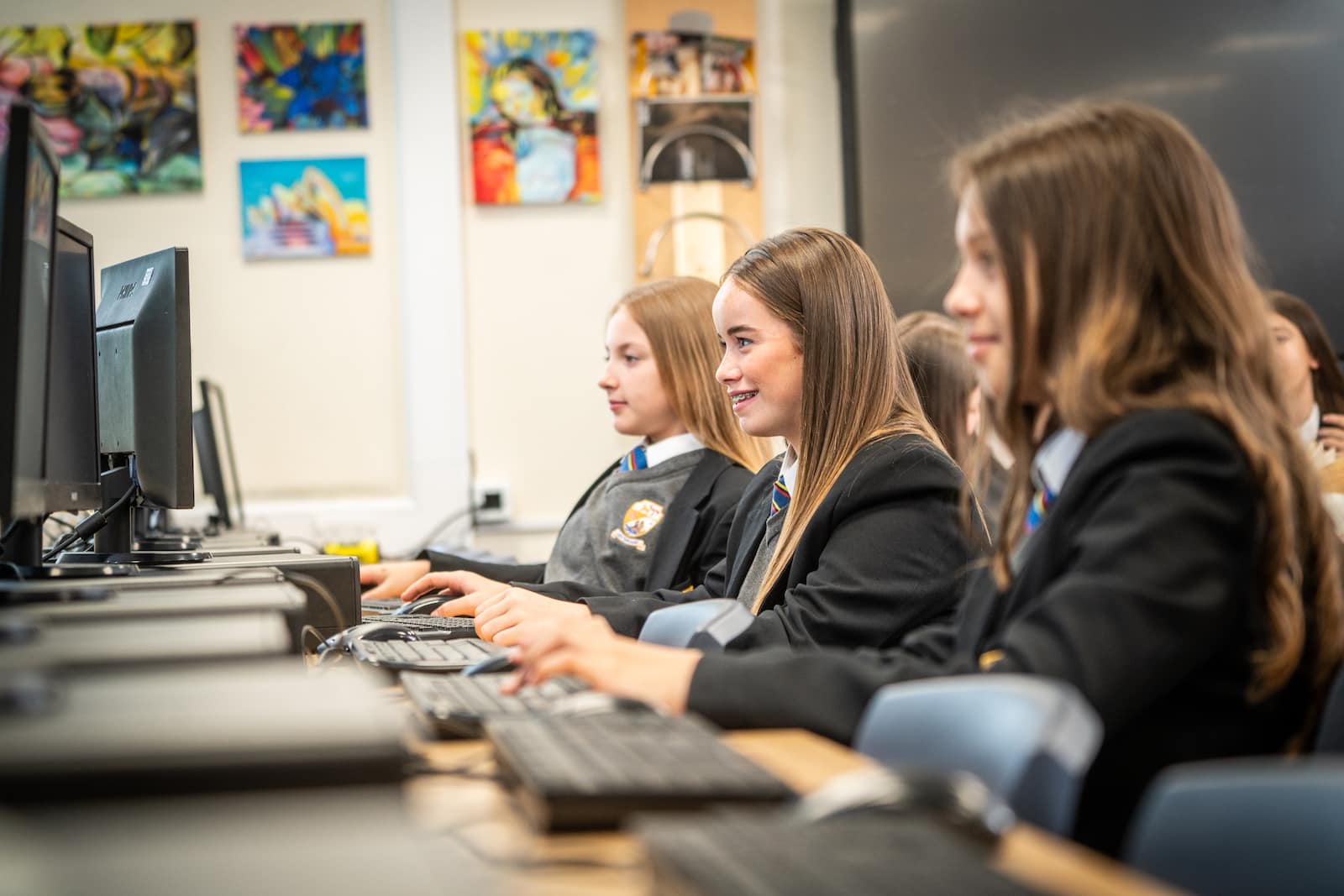Science is changing our lives and is vital to the world’s future prosperity, and all students should be taught essential aspects of the knowledge, methods, processes, and uses of science. They should be helped to appreciate the achievements of science in showing how the complex and diverse phenomena of the natural world can be described in terms of a few key ideas relating to the sciences which are inter-linked, and which are of universal application.
In Science we aim to create a learning environment which presents Science as an intrinsic part of the world we live in. Foster the notion that science is a way of thinking much more than a body of knowledge. Demonstrate that the ability to think scientifically leads to success in life far beyond the science classroom.
We will teach pupils to question the world around them, to aid them in garnering a deeper understanding of the world and how science interlinks across the whole school curriculum. We will provide opportunities for pupils to broaden their scientific language and develop problem solving skills. This enables them to articulate the constantly evolving scientific concepts of the world in which they live.
We will reinforce the notion that belief in God and the gospel teaching of Jesus Christ is compatible with Science and the scientific process. We will provide opportunities for pupils to realise that we have a God given responsibility to this planet and to care for it as our common home.
We aim to develop scientific knowledge and conceptual understanding through the specific disciplines of biology, chemistry, and physics.
Our key stage 3 curriculum is designed to fully match the National Curriculum for Science. We believe that:
A high-quality science education provides the foundations for understanding the world through the specific disciplines of biology, chemistry and physics., All pupils should be taught essential aspects of the knowledge, methods, processes and uses of science. Through building up a body of key foundational knowledge and concepts, pupils should be encouraged to recognise the power of rational explanation and develop a sense of excitement and curiosity about natural phenomena. They should be encouraged to understand how science can be used to explain what is occurring, predict how things will behave, and analyse causes.
Pupils will learn about the ‘Ten Big Ideas in Science’
This forms the Substantive Knowledge of our curriculum:
- Organisms
- Ecosystems
- Genes
- Matter
- Reactions
- Earth
- Electromagnets
- Energy
- Waves
- Space
Not only will pupils become aware of some of the big ideas underpinning scientific knowledge and understanding but will also begin to see the connections between these ideas. These Big Ideas are fully integrated across the Key Stage providing opportunities to revisit and build on prior knowledge from year 7 through to year 9.
At the same time as learning and remembering this substantive knowledge, pupils develop their disciplinary knowledge of science. They learn how science works:
Disciplinary Knowledge
Pupils will develop understanding of the nature, processes, and methods of science through distinct types of science enquiries that help them to answer scientific questions about the world around them
Subject specific Skills
- Planning investigations
- Obtaining evidence
- Analysis
- Evaluation
- Graph Skills
- Scientific writing
- Modelling
At key stage 4 we continue with the process of building upon and deepening scientific knowledge and the understanding of the ‘Ten Big Ideas’ developed in Key stage 3 in the subject disciplines of biology, chemistry, and physics. There is a natural progression of the knowledge and skills acquired in years 7 to 9 as pupils’ understanding becomes deeper and more complex.
For some students, studying the sciences in key stage 4 provides the platform for more advanced studies, establishing the basis for a wide range of careers. For others, it will be their last formal study of subjects that provide the foundations for understanding the natural world and will enhance their lives in an increasingly technological society.
Science is compulsory at GCSE but we offer two pathways:
GCSE Combined Science (Two GCSEs of Science)
Pupils study the EDEXCEL GCSE Combined Science Specification. This pathway covers biology, chemistry and physics units. Pupils do not study science as an option subject.
GCSE Individual Sciences (GCSE Biology, GCSE Chemistry, GCSE Physics)
- https://qualifications.pearson.com/content/dam/pdf/GCSE/Science/2016/Specification/GCSE_Biology_Spec.pdf
- https://qualifications.pearson.com/content/dam/pdf/GCSE/Science/2016/Specification/GCSE_Chemistry_Spec.pdf
- https://qualifications.pearson.com/content/dam/pdf/GCSE/Science/2016/Specification/GCSE_Physics_Spec.pdf
Pupils study the EDEXCEL GCSE Individual Sciences Specification. This pathway covers Biology, Chemistry and Physics as three separate GCSEs. Pupils study science as one of their option subjects.
Catholic Social Teaching permeates all aspects of life. Science does the same. As such, the science curriculum provides plenty of opportunity to promote and explore Catholic Social Teaching. Whilst studying the environment we explore how we all have the responsibility of stewardship of creation. The sheer wonder of God’s creation is illustrated during topics about evolution and adaptation. Life and dignity of the human person is recognised and explored in topics on human reproduction, health, disease and the development of medicine. Solidarity and the idea of one human family are discussed during topics about climate change and fossil fuels, Genetic Modification in agriculture and how energy is used or wasted. Pupils are encouraged to reflect on the decisions they make as consumers and how these decisions will impact the wider world in which they live. During discussion pupils realise that science does not have all the answers to the World’s problems but that the right decisions need to be made based on our Catholic Social teaching. We encourage them to see that science has a positive role to play in ensuring that the dignity of the human remains fundamental within our global society. We strive to instill in them the responsibilities scientists have in making the world a better and fairer place and that God’s creation deserves to be respected and cared for.
We also have a varied schedule of enrichment opportunities throughout the year.
In the past we have been involved in:
- Futures Females in STEM Programme
- Aspire 7+ workshop series at West Lancs College
- Unilever Bright Futures STEM competition, Port Sunlight
- Big Bang Digital – a one-day event, jam-packed with insightful talks and presentations, and there’s loads of stuff for you to follow along with at home
- Young Medics programme, West Lancs College
- Introduction to Electron Microscopy, Liverpool University
Watch this space for future opportunities!


